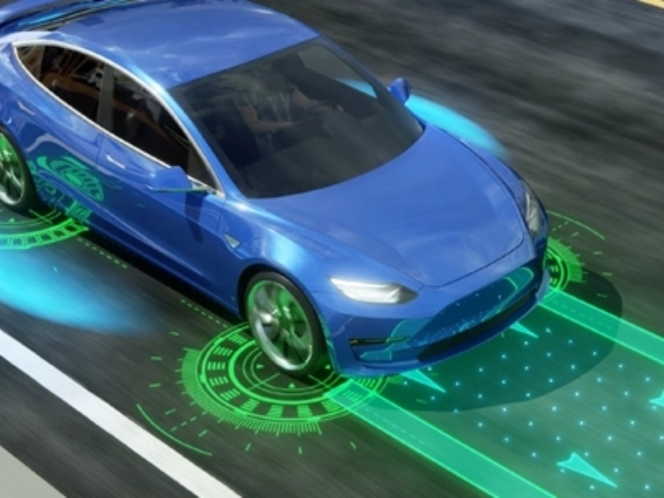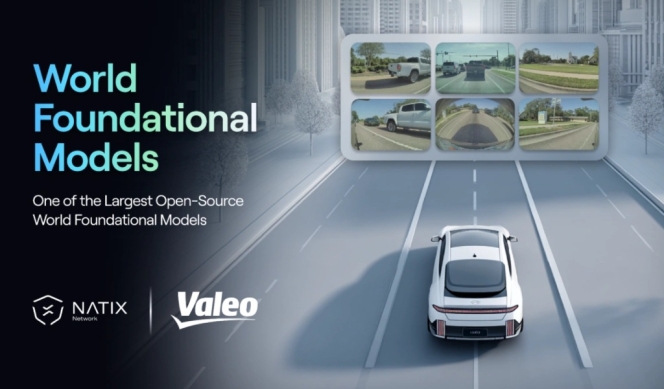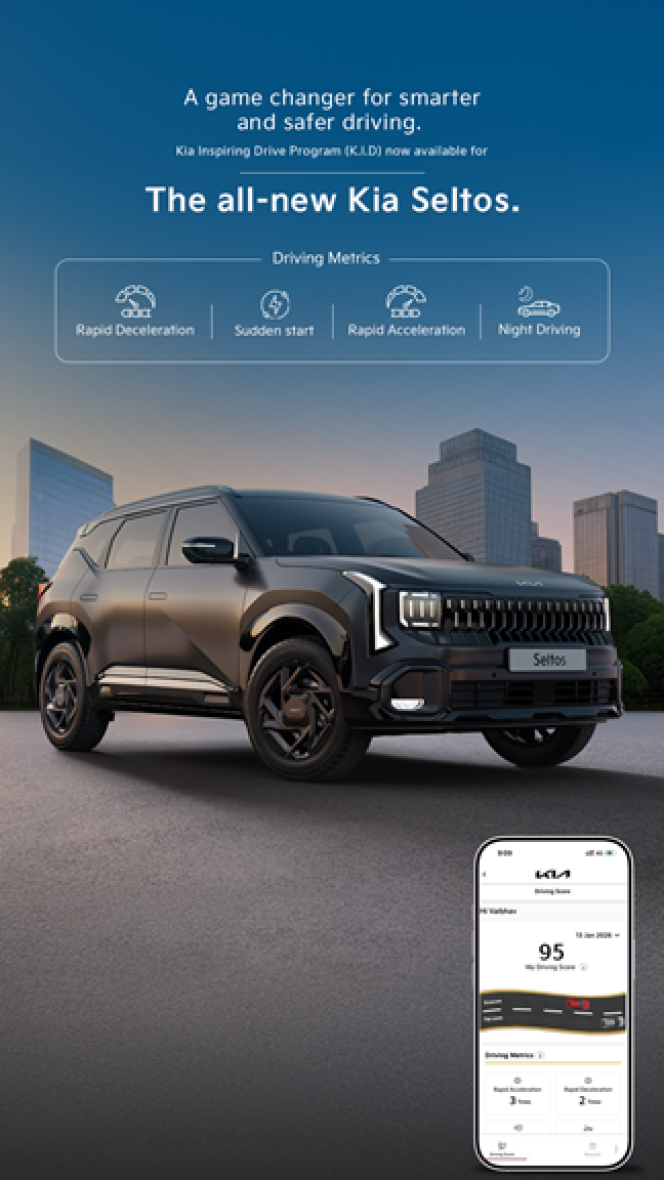- Pirelli
- Science Based Targets initiative
- Greenhouse Gas Emissions
- Paris Agreement
- Net Zero
- SBTi
- Sustainability
- Global Warming
Promote Auto LPG While Awaiting EVs For Clean Air
- By 0
- April 05, 2020

A recent study conducted by researchers from the International Council on Clean Transportation (ICCT), George Washington University, and the University of Colorado Boulder in the US estimated that vehicle tailpipe emissions were linked to about 385,000 premature deaths from ambient PM 2.5 and ozone worldwide in 2015. An estimated 70 percent of these occurred in the four largest vehicle markets -- China, India, the EU, and the US.
While the figures paint a grim picture, we see no urgency in bringing about an immediate improvement in air quality standards. The government of India has put a long-term policy focus on shifting to electricity as a transport fuel. However, this will bear fruits only after at least a decade of work and infrastructure development. As we wait for electric vehicles, we must not lose the opportunity to use the readily available cleaner fuels such as auto LPG which can clean the urban air faster.
In the wait for the roll-out of EVs, India is missing on the immediate environmental benefits of auto LPG, an easily deployable source of transport power. It emits up to 120 times less particulate emissions than diesel vehicles; 96 percent less nitrogen dioxides (NOx) than diesel and 68 percent less NOx than petrol. It is also more than 30 percent cheaper than petrol. Over 26 million vehicles across 70 countries run on auto LPG. South Korea sells 4 million tonnes of this fuel annually. In the US, Russia, Japan and China, governments incentivize auto gas usage with tax breaks on sales, excise, registration, parking and road use charges.
Two-wheelers
More than 40 percent of vehicular pollution in Delhi comes from two-wheelers. Across the country, 2-wheelers account for more than 75 percent of vehicles on roads. We need to start pushing two-wheelers towards cleaner fuels as well. Auto LPG makes for the most viable alternative. The 2-wheeler conversion kit is available for about INR 5000-5500 along with a convenient side fitment of the LPG Tank.
Promote Gaseous Fuels
While a large number of buses and public transport vehicles in several cities are running on CNG, it is also necessary to convert a substantial number of private vehicles to gaseous fuels. Rapidly shifting to a mix of CNG and auto LPG is an easier task than shifting to EVs. While the government supports CNG through the City Gas Distribution Project, it has left out auto LPG.
Auto LPG has several advantages over CNG, including 5-6 times less installation cost for refueling stations and less engine performance loss. Globally, auto LPG is the third most commonly used automotive fuel after petrol and diesel. Seven of the 10 large car manufacturers produce LPG-powered cars. Auto LPG occupies very little space in car boots and can be transported in cylinders in trucks to distant outposts.
Auto LPG is already available in 500 Indian cities and it neither needs any major infrastructural overhaul nor any subsidies to encourage consumers. It is important that the government frames policies that are favorable to all alternative fuels to allow consumers a wider choice.
An urgent policy intervention is to change the Type Approval norms of the Ministry of Road Transport for vehicles converting to gaseous fuels. In India companies have to renew the extremely costly Type Approvals for auto LPG and CNG conversions every three years. This has resulted in a rapid dwindling of players in the retro-fitment market. The Type Approval Validity must be made perpetual in line with the European norms. Similarly, the GST rate on LPG conversion kits for vehicles must be reduced from 28 percent to 5 percent as a measure to push up the rate of vehicle conversion to environment-friendly fuels. The GST rate on auto LPG also needs to be brought down from 18 percent.
(Suyash Gupta Is Director General of Indian Auto LPG Coalition; views expressed are personal)
LTTS Secures Multi-Year Deal From Automotive OEM For Engineering And R&D
- By MT Bureau
- January 28, 2026

Bengaluru-headquartered ER&D company L&T Technology Services (LTTS) has announced a multi-year engagement within its mobility segment from an automotive manufacturer. The agreement involves software, connectivity and digital engineering services across vehicle technology domains. This win follows the company’s investments in R&D labs and mobility infrastructure designed for programs with global manufacturers.
The engagement covers mobility engineering capabilities, including embedded systems, digital platforms, verification and validation, cloud integration and cybersecurity. LTTS intends to use its engineering expertise and delivery frameworks to support the customer's technology roadmap.
At present, LTTS operates 22 design centres and 100 innovation labs globally.
The agreement strengthens the partnership between LTTS and the automotive manufacturer in the area of mobility engineering. The company provides design, development, and testing services across the mobility, sustainability, and tech segments.
Alind Saxena, Executive Director and President, Mobility and Tech at L&T Technology Services, said, “We are proud to deepen our partnership with the valued customer through this strategic engagement. LTTS brings together domain-led engineering, secure development practices and excellence in global delivery to accelerate the future of premium mobility. The win reflects the trust placed in our teams and our commitment to delivering world-class engineering at scale”.
Valeo And NATIX Network Partner To Develop Open-Source World Foundation Model
- By MT Bureau
- January 25, 2026

French technology company Valeo and NATIX Network have announced a partnership to develop a multi-camera World Foundation Model (WFM). The project combines Valeo’s research in artificial intelligence and generative modelling with NATIX’s decentralised physical infrastructure network (DePIN) to create an open-source platform for autonomous driving and robotics.
The initiative aims to move beyond perception-based models by creating a system capable of predicting future states and reasoning about physical interactions in a four-dimensional environment. The model will be trained using NATIX’s data network, which has collected 600,000 hours of video data across the US, Europe and Asia over seven months. This data provides the multi-camera inputs necessary for the spatial perception required by autonomous vehicles and robots.
The partnership builds upon Valeo’s existing open-source frameworks, VaViM (Video Autoregressive Model) and VaVAM (Video-Action Model). While these frameworks were previously trained primarily on front-camera datasets, the integration of NATIX’s multi-camera network expands the AI’s field of vision to 360 degrees.
Under the open-source framework, the partners will release models, datasets and training tools. This approach is intended to allow the research community to fine-tune models and benchmark physical AI across various driving conditions and geographic regions. The collaboration seeks to accelerate the deployment of end-to-end AI models by learning from real-world edge cases captured by vehicles in operation.
Marc Vrecko, Chief Executive Officer, Valeo’s Brain Division, said, “Since our creation in 2018, Valeo’s AI research center has been at the forefront of AI research in the automotive industry, especially in the fields of assisted and autonomous driving. Our goal has always been to advance mobility intelligence safely and responsibly. By combining Valeo’s generative world modeling research expertise with NATIX’s global multi-camera data, we are accelerating both the quality and the accessibility of next-generation end-to-end AI models, enabling the research community to build upon strong open models.”
Alireza Ghods, CEO and Co-Founder, NATIX, added, “WFMs are a once-in-a-generation opportunity — similar to the rise of LLMs in 2017–2020. The teams that build the first scalable world models will define the foundation of the next AI wave: Physical AIs. With our distributed multi-camera network, NATIX has a clear advantage of being able to move faster than large OEMs.”
- Tata Technologies
- Amazon Web Services
- InnoVent 2026
- Jaguar Land Rover
- Air India
- ES-Tec Group
- Warren Harris
Tata Technologies Concludes InnoVent 2026 Engineering Hackathon
- By MT Bureau
- January 23, 2026

Tata Technologies has announced the completion of the 3rd edition of its innovation hackathon, InnoVent 2026, supported by Amazon Web Services (AWS). The initiative invited engineering students to develop solutions for mobility challenges in the automotive and manufacturing sectors. The programme received participation from 10,247 students across 404 colleges in India, resulting in 2,822 projects.
The competition focused on the theme of intelligence-driven mobility for the year 2030. Participants received over 650 hours of mentoring and training from subject matter experts to convert their concepts into prototypes. The top 10 teams presented their work at the company's Hinjewadi campus in Pune before a jury of industry leaders from Jaguar Land Rover, Air India and ES-Tec Group.
Team Drushti from CMR College of Engineering & Technology, Hyderabad, secured the first prize of INR 300,000 for a system that customises vehicle infotainment for visually impaired drivers. Second place went to Team The T-Factor from Vellore Institute of Technology, Chennai, for an AI-based breakdown prevention system. Team SwarmSync from the International Institute of Information Technology (I²IT), Pune, took third place for an intelligent fleet management solution using V2X communication.
Tata Technologies offered career opportunities to all 42 finalists involved in the top projects. Furthermore, all participants were granted one-year access to the iGETIT learning platform to study emerging technologies. The finalist projects covered areas such as blockchain for vehicle security, wireless charging for electric vehicles, and AI-led battery monitoring.
The event featured a humanoid robot that performed roles such as coordinating panel discussions and interacting with attendees. A panel of industry experts discussed the global demand for engineering talent and the impact of technology on future mobility.
Warren Harris, MD & CEO, Tata Technologies, said, "InnoVent at Tata Technologies represents our conviction that the future is shaped by those who combine engineering excellence with human purpose to engineer a better world".
Kia India Reintroduces Driver Behaviour Monitoring Tech
- By MT Bureau
- January 23, 2026

Kia India has announced the re-launch of its Kia Inspiring Drive (K.I.D) Program, debuting alongside the New Kia Seltos. The initiative is a driving score system designed to monitor real-time behaviour and provide insights into habits. Accessed via the Kia Connect app, the programme will be rolled out across the company’s connected vehicle portfolio in phases.
The K.I.D score is calculated using a three-month rolling average based on parameters including rapid acceleration, rapid deceleration and sudden starts. To ensure data accuracy, the system applies a weighted value based on the specific vehicle. This methodology aims to reflect long-term driving patterns rather than isolated incidents.
The programme incorporates community-based leaderboards, allowing owners to compare scores and track their standing within the Kia community. By turning road safety into an interactive experience, the manufacturer intends to encourage responsible driving through recognition and competition.
The behaviour-based scoring system provides data to help users understand the impact of their habits on road safety. Kia is supporting the re-launch with a digital and press campaign to increase awareness among its customer base.
Atul Sood, Senior Vice-President – Marketing & Sales, Kia India, said, “Safety remains at the core of Kia’s philosophy, and with the re-launch of the Kia Inspiring Drive program alongside the New Seltos, we are taking another meaningful step towards encouraging responsible driving behaviour. By offering customers clear, data-driven insights into their driving patterns, the KID program empowers them to make safer choices on the road, while also enhancing their overall ownership experience.”







Comments (0)
ADD COMMENT